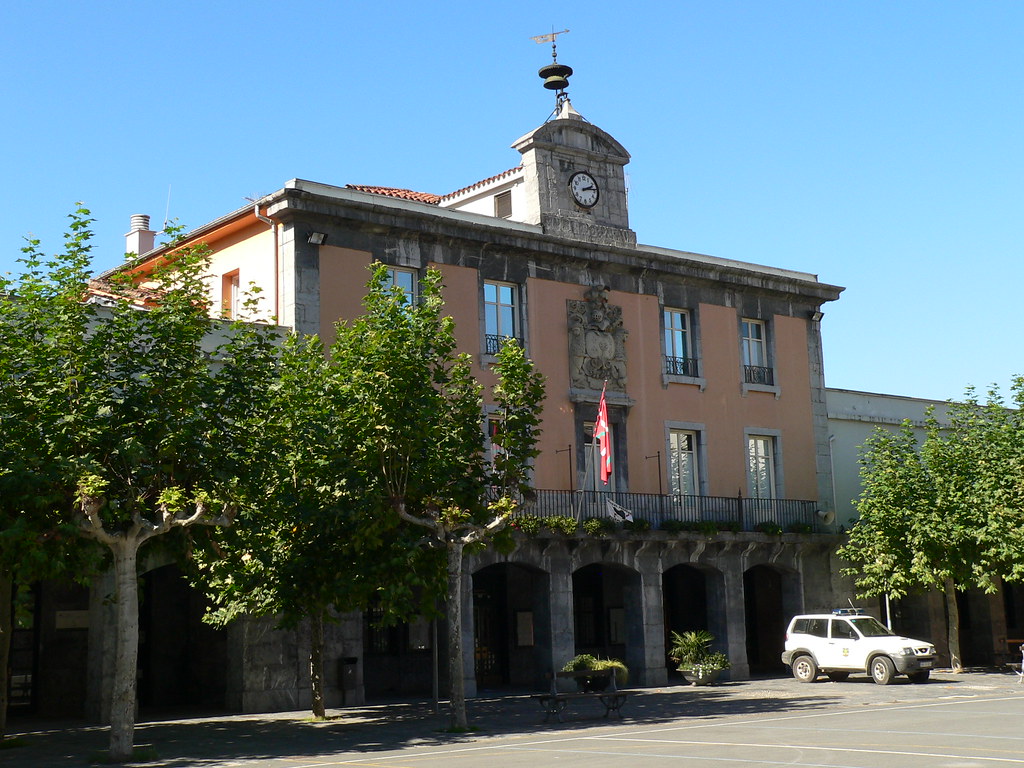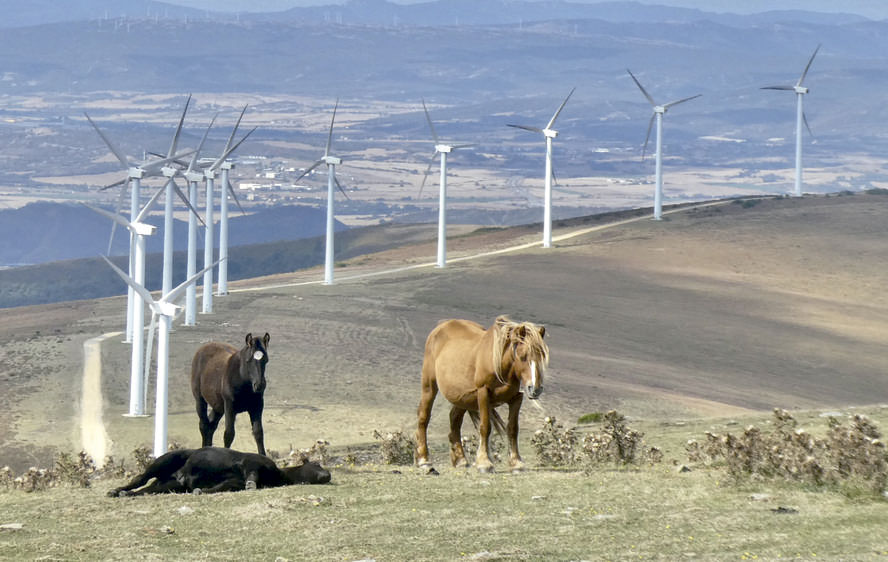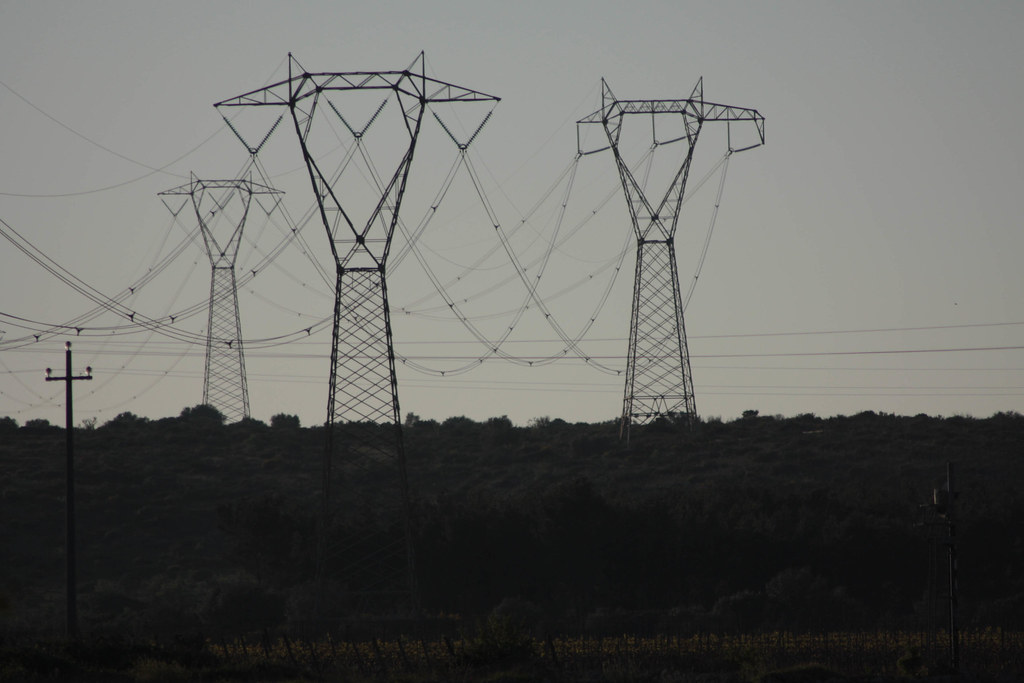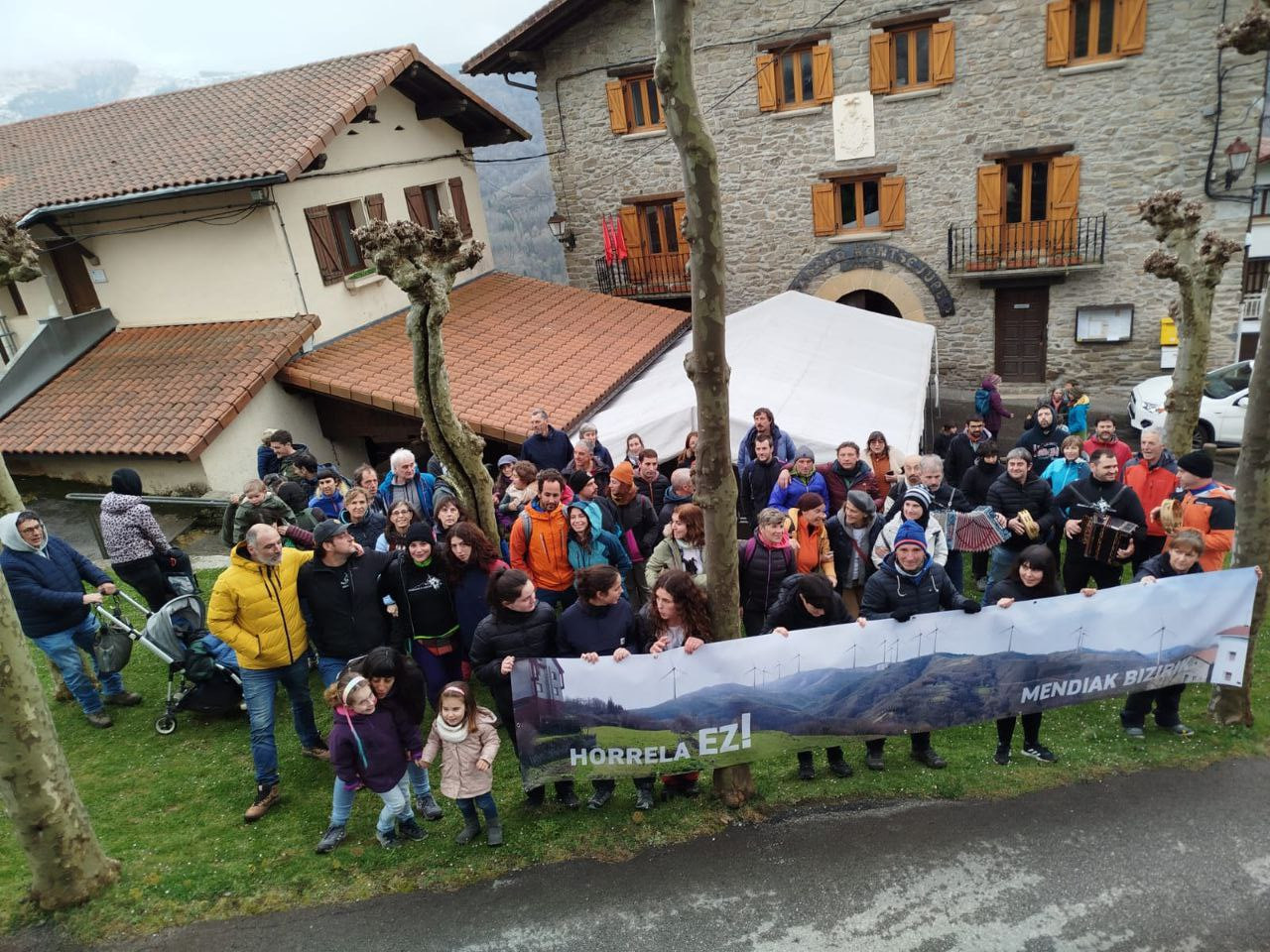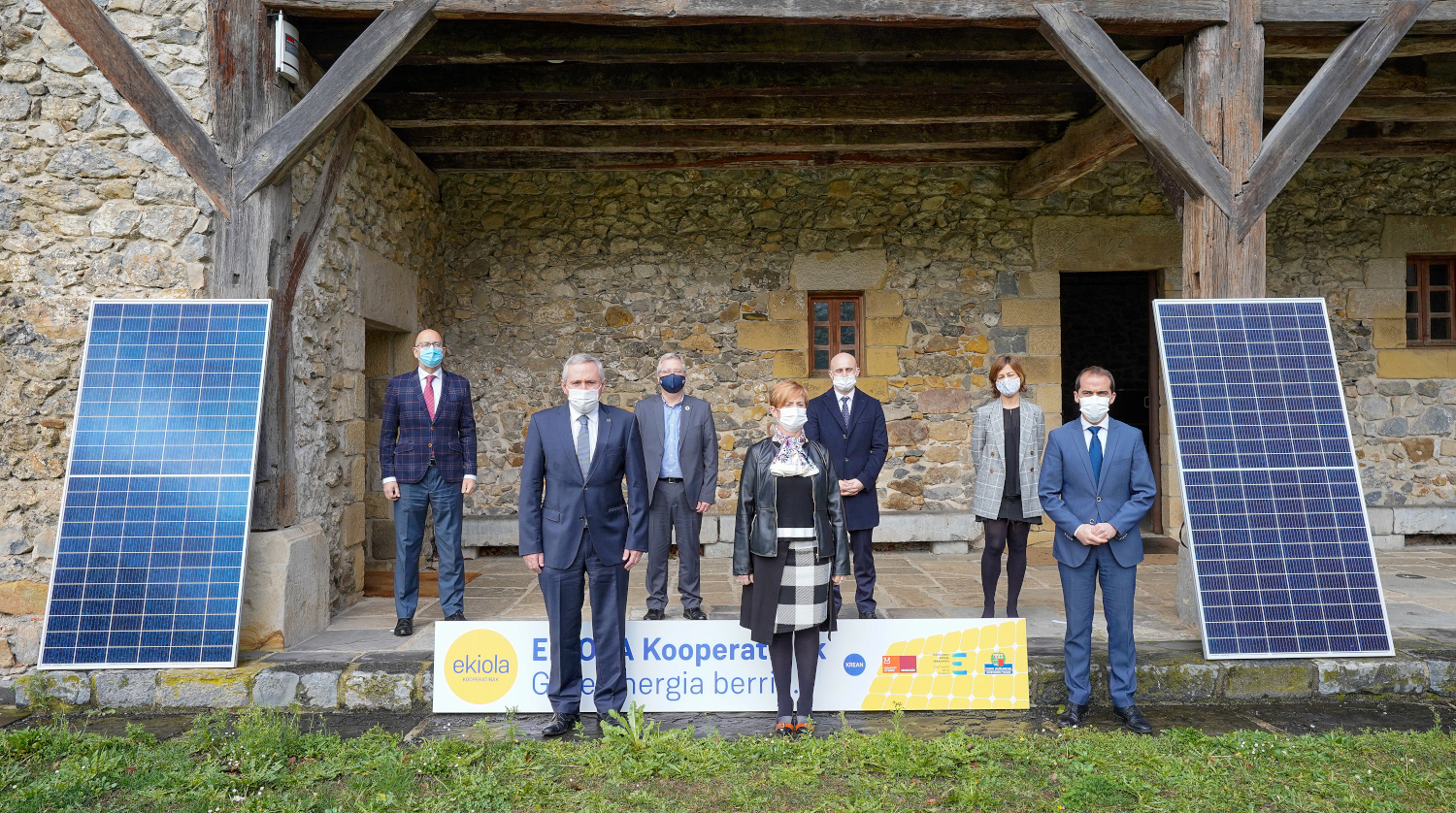"They sell us that with renewable energy we will get a proper price and it is not true"
- Pablo Lorente, member of the Subai Foundation, was interviewed on January 11 at Eguzki station. It has focused on Navarre’s Horizon 2030 Energy Plan and the social, economic and energy model that should be targeted to reduce CO2 emissions. He warns of green capitalism: "These companies in the energy sector are making the transition from their business model, not that of society." Here you can hear the full conversation in Spanish from the 41st minute.

How do you value the Horizon 2030 energy plan being developed by the Government of Navarra?
The draft of this new Energy Plan is led by the previous collado. It is like the previous plan, it does not plan another model to replace this current model of high consumption and great waste. And it does not propose democratic planning in line with the basic needs to be met. This plan falls into the mistakes of the past: it continues to think about growth, and it never talks about reducing energy consumption.
An energy plan is not just electricity and gas, it's much more: it's a production model, a transport model, a food production model -- and all that's barely touched on in this plan. What it does is to let large oligopolistic energy companies do, in particular.
To which energy model does this plan respond?
Green capitalism, that Green New Deal, is a mere propaganda of big capital, and is now based on the “recognition” of renewables by taking advantage of the wave, especially wind and solar.
It follows green capitalism, that Green New Deal, pure propaganda of big capital, which is now based on harnessing the wave of “acceptance” of renewable energies, especially wind and solar. All this aimed at increasing the business margin of companies related to the energy sector, which are making the transition from their business model, not that of society, which would be based on clean energy and respect for biodiversity and territory. The Horizon 2030 plan also develops it. That is why it is not a blow to energy production or consumption. In the case of wind energy, it does not raise anything and with all the demands of wind and solar polygons projects already presented, in practice it would achieve the amount of renewable electricity that the plan has set in its 2030 targets, and we are still in 2023! In fact, the productive and consumerist approaches will be overcome five years before the end of the plan.
There is no commitment to public transport in terms of transport to minimise greenhouse gas emissions from goods and private transport. These emissions are responsible for pollution and climate change, a term that sometimes serves as a catapult for their developmentalist goals. The Government continues to rely on models such as the TAV, which are very polluting not only because of the massive need for energy, but also because of the emissions resulting from its production, and because the whole process of producing these projects is based on estractivism: heavy machinery is needed to move these heaps of land. All this in order to achieve high speed, when we already have a railway, all we have to do is to opt for the public and social train, taking advantage of most of the existing infrastructures.
Another contradiction in this plan is that it bets on the electric car rather than on the electrification of transport. They're not electrical solutions to the mobility problem.
And another contradiction that this plan has is that it bets on the electric car rather than on the electrification of transport. They are not electric solutions to the problem of mobility or cars for everyday use. Work must be done in another direction to achieve less pollution of transport and less impact on territory and biodiversity. But here there are obligations to some multinationals linked to the automobile sector, and as it is true that they create thousands of jobs, it is also true that it will not be a solution. We're seeing it, and the big CEO of the world of big car brands already says that it's going to produce less and more expensive. Therefore, to continue to opt for a unilateral and productivist industrial model focused on the automobile, whether electric or not, is a mistake not only in the energy field, but not only in the environmental, but also in the economic and labor spheres.
Mobility is a big knot...
No attempt has been made to reduce mobility, which means bringing services and administration closer to citizens, especially in rural areas. It does not promote a model in which understanding that transport should only be for essential things. Conversely, the consumption models that are still being promoted are based on internet shopping, or large shopping centres, and therefore require a great development of mobility for the distribution of goods or for citizens' access to these shopping centres.
In food there is no wager for 0 km and organic products. They continue to strive to facilitate the construction of macro-farms or to extend those carried out in an allegal or even illegal manner. There is no commitment to a living primary sector that keeps the population in small towns.
They continue to be strong in a collapsing model, which will involve the installation of large polygons for wind and solar energy, which will only benefit big capital.
There is no commitment to republish or nationalise a strategic sector such as energy. Its production, distribution and marketing must be in the hands of the public, inter alia, in order to avoid fluctuations in the energy market, which are causing small and medium-sized enterprises to suffer and, above all, citizens to increase electricity prices in their homes so much. We must bear in mind that more electricity is produced in Spain than ever with renewable energy and that electricity is more expensive than ever before. The motto they always sell to us is that with renewable energies, together with the whole issue of the green issue, it would above all be possible for prices to be the right ones for citizens to have access to electricity. And it is untrue that renewable energies generate more electricity than ever before, the price of electricity has been more expensive than ever, while those in the electricity oligopoly and hydrocarbon sectors are earning billions of euros of profit.
In short, instead of betting on an energy model of a democratic nature, with democratic planning, which would be public and universal, decentralised and deconcentrated ... One thing is completely reverse, and that is why we say that it is to continue to build strength in a model that is collapsing and that this is going to involve installing large polygons for wind and solar energy, and these are only going to benefit big energy capital: the funds of many oligopolistic investments. Many of the productive areas of agriculture are being held in private foreign hands, which means that we have less and less energy and food sovereignty. And these sovereignties are fundamental to a developed, just, balanced and as egalitarian a society as possible. And this energy plan doesn't drive it and it benefits you little.
Nor is progress made in reducing greenhouse gas emissions.
In Navarre we have major producers of greenhouse gases: Castejón thermal plants, Olazti cements and Magna Zubiri company
Yes, in Navarre we have very large producers of greenhouse gases, apart from road transport with fossil fuels, and they are the three thermal power stations of Castejón, which were once made illegal. This plan does not mention them and it will be appropriate to produce hydrogen by combining water and gas, and of course the hydrogen obtained is not of renewable origin. Another major producer of greenhouse gases is the cement company of Olazti and the company Magna of Zubiri. These large companies will continue to receive public support to develop ways to reduce some emissions. With these, and enhancing intensive livestock farming, and expanding the slimming in the open air, the same magnesite production model is being promoted in the Baztan Centre, which will produce many environmental effects. Or building infrastructures that require a lot of land movement and a lot of cement, like the TAV.
All of this is absolutely contradictory to what they say, with the reduction of greenhouse gas emissions, with talking about another model and circular economy… It is all a matter of pure question and publicity to green capitalism, which are exciting to us through the media. And in that collective imaginary that is emerging, it also seems that this is the only solution there is, and that's not true. This solution is a solution for those of forever, to make it a business for those of forever.
In Navarre, power lines are being promoted and citizens are becoming concerned.
With the boom in the wind and solar polygons that are intended to be carried out, the problem does not arise only in the rural lands in which they are planted, but it must be carried out because it is not for the benefit of the inhabitants of the area. These infrastructures are built as a business for the integration of electricity into the Spanish electricity grid. The infrastructure of such power lines is not in question, even in the case of the line crossing Navarre to the Basque Country, so that the transport of electricity through the submarine line to France or England can finally be completed. This line has more impact than current high-voltage lines.
These infrastructures pose a great risk to biodiversity and also occupy communal land of livestock value. If food is to be guaranteed to the whole population, a potato or cereal grain is eaten, but not a volt. And they're betting on that model, which is very speculative and business. And there is no commitment to increase sovereignty either in food or in energy.
The model you demand should be public...
In the primary sector it is necessary to support small projects and eliminate macro-farms, large greenhouse gas stations
It should be a public model, but linked to a social and economic model. For example, in the primary sector, it is necessary to support small projects, linked to the territory and geared towards organic production, and it is necessary to eliminate macro-farms that are large emitters of greenhouse gases. According to this plan, they want Odieta to be a biogas-producing macrofarm, so it would also get subsidies to strengthen its business model.
Public transport should also be targeted, particularly by investing in rail and eliminating private transport as much as possible, irrespective of whether it is fossil or electric fuel.
And it is important that all of this is done with a planning so that emission reductions are based primarily on consumption reductions. This does not require the production of more wind polygons or more photovoltaic polygons in areas of biodiversity. In the case of the deployment of renewables, the focus must be on the occupation of spaces already acquired by humans and the promotion of energy communities. But not those energy communities that they want to deploy, that ultimately encourage “save yourself,” but they have to be collective, understanding that they are not for business.
Energiaren Nazioarteko Agentziak (IEA) astelehenean argitaratutako txostenaren arabera, %2,2 igo da energia eskaria 2024an aurreko urtearekin alderatuta, besteak beste, egiturazko arrazoi hauengatik: beroari aurre egiteko argindar gehiago erabili beharra, industriaren kontsumoa... [+]
Arratzua-Ubarrundiako "Proiektu honi ez!" plataformak adierazpen hau kaleratu du, udalerri horretako EH Bilduko hiru zinegotziek dimisioa aurkeztu berritan. Izenburu hau darama testuak: "EH Bilduren moketako politika edo Iparra nola galdu".
Arratzua-Ubarrundia (Araba) herriko EH Bilduko hiru zinegotziek dimisioa eman dute Solariaren zentral fotovoltaikoagatik. Hau da hiru zinegotziek, Txetxu Zengotitabengoak, Laura Sanchok eta Javier Ruiz de Arkautek, herritarrei zuzendu dieten agur mezua.
Eusko Jaurlaritzak eta Arabako Foru Aldundiak Datu Zentroen instalazioei ateak irekitzen dizkiete horiek arautzeko legedia sortu aurretik. Bilbao-Arasur Dantu Zentroarekin, bere lehen fasea gauzatuta, eta instalatzea amesten duen Solariaren Datu Zentroarekin, 110.000 m2... [+]
Otero jauna, garai honetan artzain honek ez du tarte handirik izaten ezertarako, justuan ibiltzen naiz, baina gaurkoan ezin utzi erantzun gabe zure azken kolaborazioa. Izan ere, sortu didan egonezinak pisua du. Haserrea ere astuna egiten zait. Ez pentsatu, ordea, dela zenbait... [+]
Martxoak 15 goizean elurrak zuritu zuen Arano. Bertako herritarrek eta ingurutik eta ez hain ingurutik bildutakoek bete zuten plaza eta elkartasunaren beroan gozatu zuten eguna: Urumeako mendietan ezarri nahi duten Euskal Herriko zentral eoliko handienaren kontrako protesta izan... [+]
Susmoa dut komunitatea hustuketa prozesu betean dagoela, eta beldur naiz, beste askori gertatu eran, mamirik gabeko bilgarri ez ote den bilakatuko, jada bilakatu ez bada. Ikustea besterik ez dago, komunitatearen izaera holistikoa gero eta modu lausoagoan heltzen da, eta Che... [+]
Herriko EH Bilduko zinegotzi eta legebiltzarkide den Ander Goikoetxeak egindako galdera parlamentario bati Jaurlaritzak emandako erantzunaren bidez jaso informazioa hau. Bi haize sorgailu ezartzeko asmoa dago eta Cluster Hernani izeneko proiektu zabalago baten barruan kokatzen... [+]










